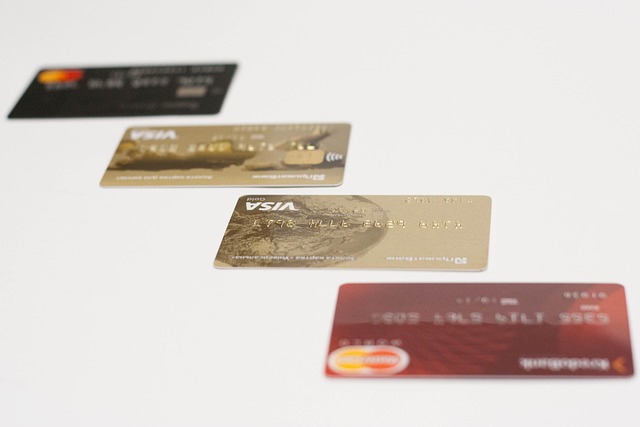Understanding the Advantages of Lease-to-Own Car Options
Lease-to-own car arrangements offer a unique pathway to vehicle ownership that combines the flexibility of leasing with the eventual goal of owning your car. This financing option has gained popularity among drivers who want lower monthly payments initially while building toward ownership, making it an attractive alternative to traditional auto loans or standard leases.

Lease-to-own car programs represent a hybrid approach to vehicle financing that bridges the gap between traditional leasing and purchasing. Unlike conventional car leases where you return the vehicle at the end of the term, lease-to-own arrangements are structured with the intention that you’ll eventually own the car. This financing method typically involves lower initial payments compared to traditional auto loans, making newer vehicles more accessible to a broader range of consumers.
The structure of these programs varies by provider, but most involve a lease period followed by either a balloon payment or continued payments until the vehicle is fully owned. During the lease portion, you’re essentially paying down the depreciation and interest, similar to a traditional lease, but with the understanding that ownership transfer is the ultimate goal.
What Are Lease-to-Own Cars?
Lease-to-own cars are vehicles obtained through financing arrangements that combine leasing and purchasing elements. These programs typically start with a lease agreement that includes a predetermined purchase option or automatic ownership transfer at the end of the term. The monthly payments during the lease period are often structured to build equity in the vehicle, unlike traditional leases where payments primarily cover depreciation and interest.
These arrangements often appeal to consumers who want the benefits of lower monthly payments associated with leasing while avoiding the need to return the vehicle or negotiate a separate purchase at lease end. The terms can vary significantly, with some programs requiring a final balloon payment while others structure payments so the vehicle is fully paid off by the lease term’s conclusion.
Opportunity to Upgrade Through Flexible Terms
Shorter lease terms allow drivers to upgrade their vehicles more frequently than traditional ownership would permit. Many lease-to-own programs offer terms ranging from 24 to 48 months, providing opportunities to move into newer models with updated technology and safety features. This flexibility particularly benefits drivers who prioritize having access to the latest automotive innovations or those whose transportation needs may change over time.
The upgrade potential extends beyond just getting a newer model. Drivers can potentially move into different vehicle categories, such as upgrading from a compact car to an SUV, or transitioning to more fuel-efficient or electric vehicles as their preferences evolve. Some programs even offer early upgrade options, allowing qualified lessees to transition to new vehicles before their current lease term expires.
Car Lease Options for Credit Challenges
Car lease no credit check programs exist within the lease-to-own market, though they’re less common and often come with specific conditions. These programs typically target consumers who may not qualify for traditional financing due to limited credit history rather than poor credit. Providers offering these arrangements usually require higher down payments or may focus on income verification rather than credit scores.
The approval process for no credit check lease-to-own programs often emphasizes employment stability and income consistency. Some providers may require co-signers or additional documentation to offset the reduced credit screening. While these options provide access to vehicles for those with credit challenges, the terms may include higher interest rates or more restrictive conditions compared to traditional lease-to-own arrangements.
Low Credit Car Leasing Solutions
Low credit car leasing within lease-to-own programs offers alternatives for consumers with credit scores that don’t meet traditional lending standards. These specialized programs often feature more flexible approval criteria, though they typically involve higher costs or additional requirements. Providers may accept credit scores as low as 500-550, significantly below the 650+ typically required for standard auto leasing.
The terms for low credit lease-to-own arrangements often include higher down payments, ranging from $1,000 to $3,000 or more, depending on the vehicle value and credit situation. Interest rates may be elevated compared to prime lending rates, and the selection of available vehicles might be limited to certain models or price ranges. However, these programs can serve as credit-building opportunities, as successful payment history may improve credit scores over time.
| Provider Type | Down Payment Range | Credit Score Requirement | Monthly Payment Estimate |
|---|---|---|---|
| Traditional Lease-to-Own | $500-$2,000 | 650+ | $250-$450 |
| Low Credit Programs | $1,000-$3,000 | 500-650 | $300-$500 |
| No Credit Check | $2,000-$5,000 | None/Alternative verification | $350-$600 |
Prices, rates, or cost estimates mentioned in this article are based on the latest available information but may change over time. Independent research is advised before making financial decisions.
Lease-to-own car options provide a middle ground between traditional leasing and purchasing, offering pathways to ownership for various credit situations. While these programs can make vehicle ownership more accessible, it’s essential to carefully review all terms, including total costs, interest rates, and ownership transfer conditions. The flexibility and potential credit-building opportunities make lease-to-own arrangements worth considering for drivers seeking alternatives to conventional auto financing, particularly those who value the combination of lower initial payments with eventual ownership goals.




